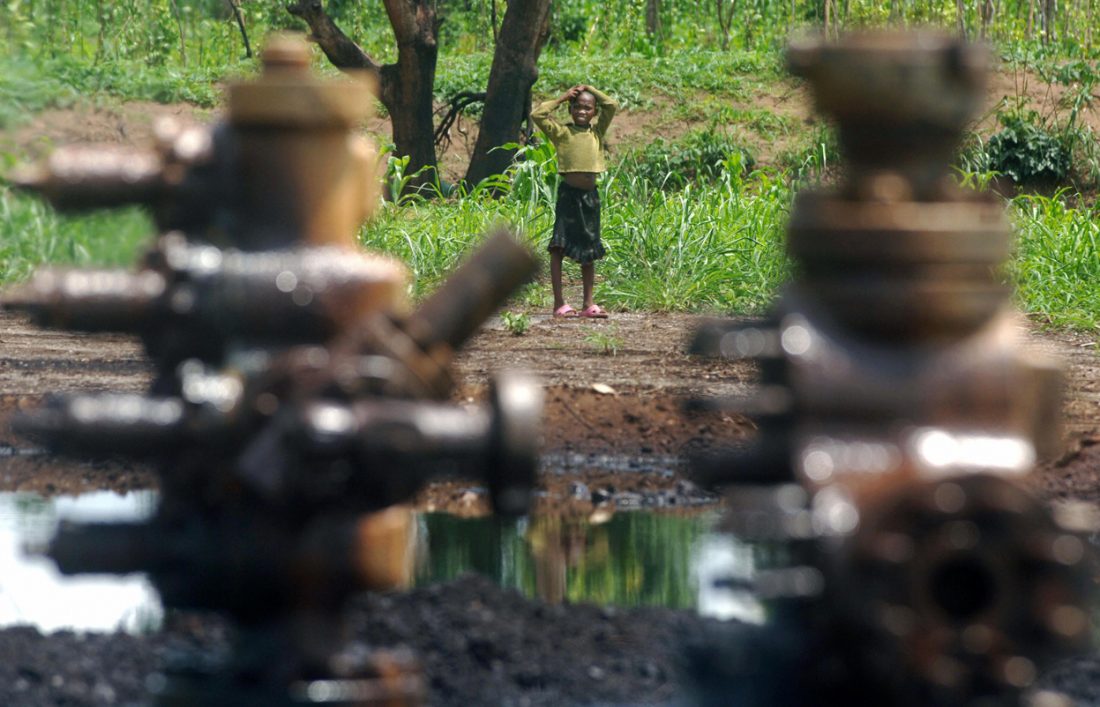Cheta Nwanze’s #HistoryClass this week is about ‘The Dutch Disease’, the discovery of oil in Nigeria and the role of oil giant, Shell.
[dropcap]I[/dropcap]n 1959, three years after Shell struck oil in Oloibiri, the company sank another well in Slochteren, Holland. In partnership with Exxon of the United States. They discovered the biggest gasfield in Europe. The field started production in 1963 and produced around 100 billion cubic meters per year in the first decade. Gradually the annual production fell to around 35 billion cubic meters per year. As of 2009 the Groningen gas field has produced 1,700 billion cubic meters which represents 60% of the total reserves. The remaining 1,100 billion cubic meters are expected to last for another 50 years. The Groningen gas field is operated by NAM, a 50-50 joint venture between Shell and ExxonMobil. Groningen accounts for 50% of Holland’s gas production in Holland, the other 50% being supplied by 300 smaller gas fields.
Not long after Groningen was discovered, the Dutch began to wonder whether the discovery had truly been a blessing. People outside the energy industry started losing their jobs. Other sectors of the economy slumped.
Today on #HistoryClass we are talking about what in 1977, The Economist diagnosed as “The Dutch Disease”. Today’s #HistoryClass references The Economist, Chukwuma Soludo, Michael Peel and Paul Krugman.
The outbreak of the Dutch Disease in Holland wasn’t isolated, but a European country was better placed to withstand it.
Dutch Disease is a pandemic whose symptoms, in many cases, include poverty and oppression. The disease enters a country through its currency. The dollars that pay for oil push up the value of the local currency. Imports become cheaper relative to locally made products, undercutting homegrown enterprises. Arable land lies fallow as local farmers find that imported fare has displaced their produce. For countries that have industrialised, the process goes into reverse; those trying to industrialise are hindered. Dutch Disease is chronic and debilitating, the real value of extractive industries is in processing, not in extraction.
In Africa, we watch our oil and minerals sail away in raw form for that value to accrue elsewhere. Essentially, the Dutch Disease prevents us from refining our own resource, and getting real value from them. Instead of diversified economies, countries with the Dutch Disease become enclaves of plenty for those who control them. While the generality of the people in these non-inclusive, highly extractive, economies, rely on crumbs from the elite.
Since a peak of 7.83% in 1982, the contribution of manufacturing as a share of total economic output in Nigeria declined. Between 2000 and now, it is only in 2005 and 2007 that our industrial output exceeded 3% of GDP. Telecoms and financial services have boomed, but the path to industrialisation is blocked off. The sale of crude oil and natural gas generates about 70% of government revenue; in newborn South Sudan the figure is 98%. Taxes, customs receipts and revenues — the things on which industrialised nations rely to fund the state and that require the acquiescence of the population — matter far less than keeping the resource money flowing.
If we remove oil industry taxes, Nigeria’s government relies on the people for just 4 per cent of its income.
The ability of our rulers to govern without recourse to popular consent goes to the heart of the Dutch Disease. What should be a social contract between the rulers and the ruled is ruptured because in reality, they don’t need us.
A government is meant to draw its legitimacy from the consensual sacrifice of certain freedoms by the people in exchange for those vested with authority upholding the common interest.
Instead of calling our rulers to account, Nigerians have been reduced to angling for a share of the loot. At some point, we will have to wake up and smell the coffee. We need this petro-state to die. #HistoryClass is over.
Cheta Nwanze is journalist and information technology professional. He is a political activist and social affairs commentator. He tweets from @Chxta.
The opinions expressed in this article are solely those of the author.







